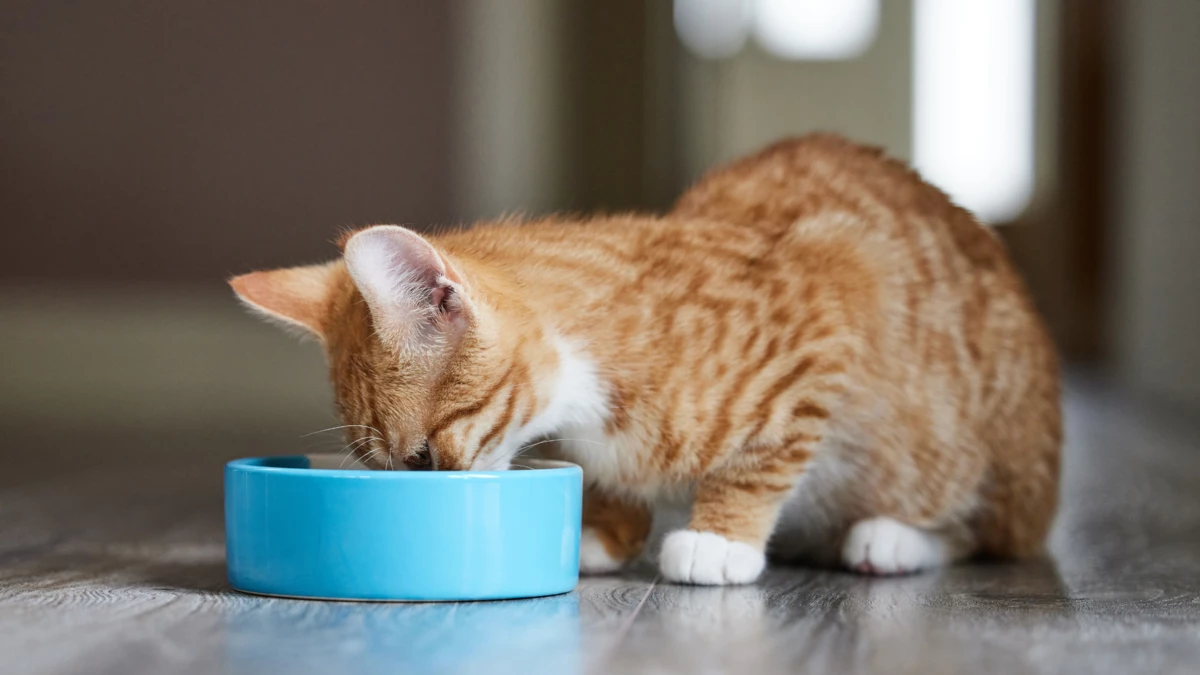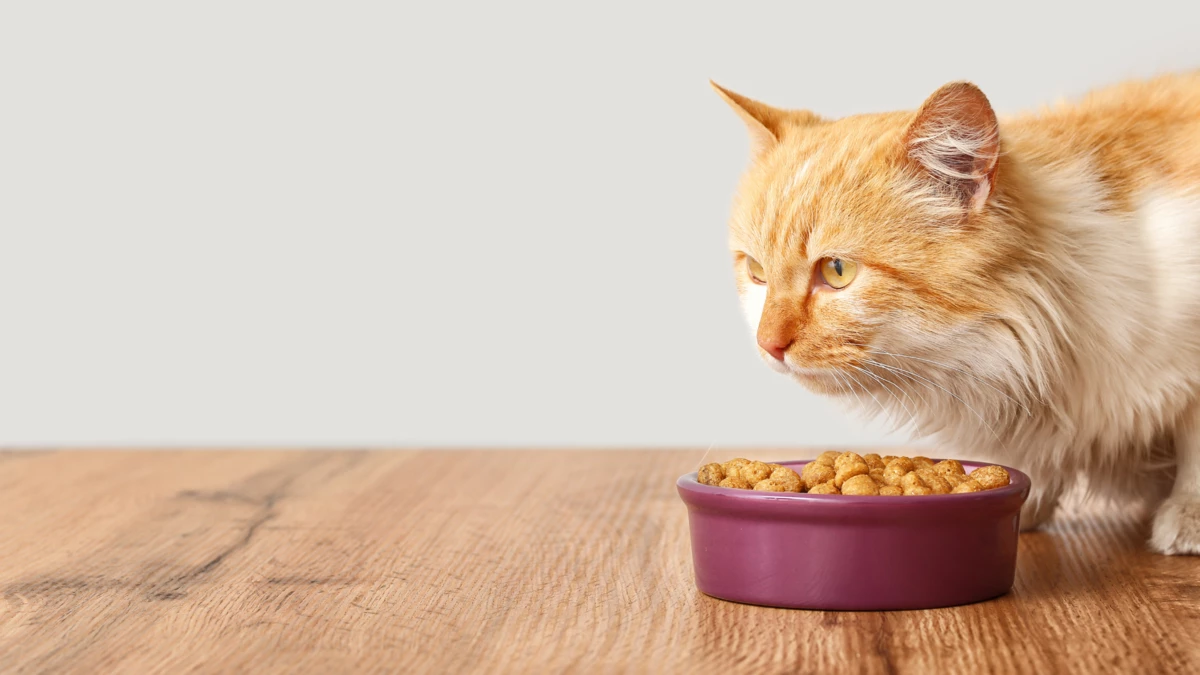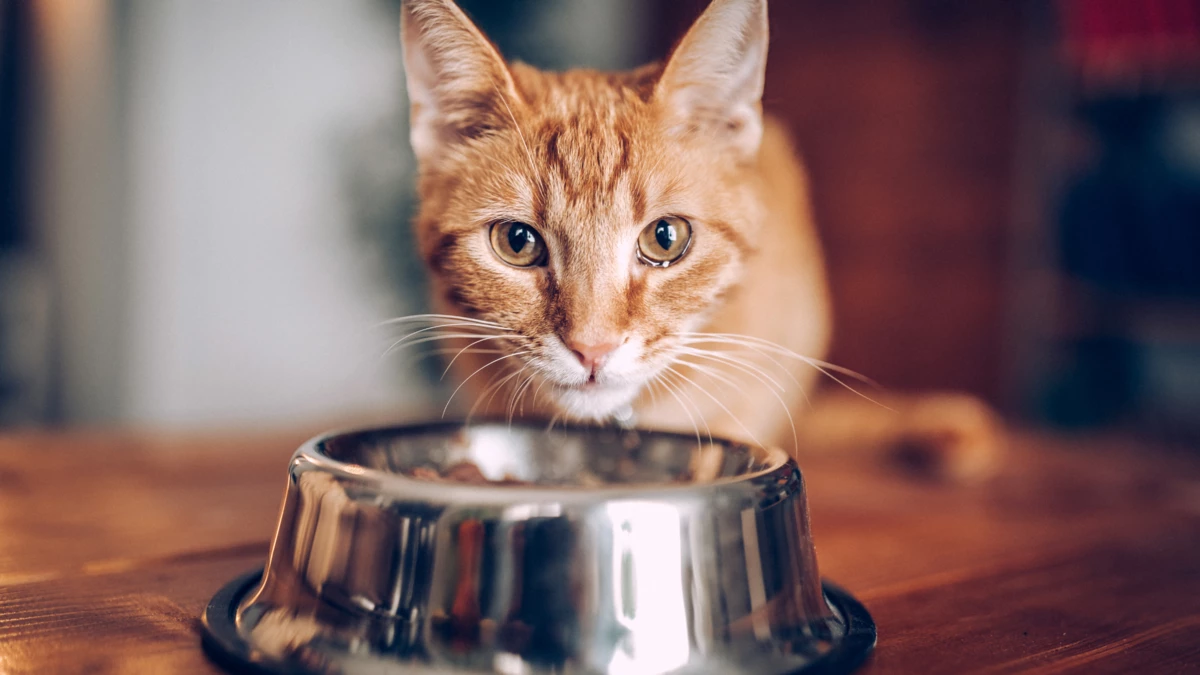Can cats eat peanuts? Is it toxic

Key Takeaways
- Peanuts are not toxic to cats, but they are not necessary for their diet.
- Peanuts are high in fat and protein, which can cause obesity and other health problems in cats.
- Peanut butter is also safe for cats in moderation, but it should not be used to deliver medication or pills.
- Some cats may be allergic to peanuts or peanut butter.
- There are safer and more nutritious treats available for cats, such as cream cheese or specialty treats sold in pet stores.
Nuts, especially peanuts, are a very popular ingredient in different cuisines around the world, both for savory and sweet dishes. In addition to the fact that they also usually accompany sweets or the same nuts are considered snacks in different diets. And if you are a lover of peanuts, perhaps you have wondered if you can share them with the kitty you have at home. We share what Rover experts say about it.
We have good news for you, peanuts are not on the list of foods that are toxic or harmful to cats. However, being nuts, you can only offer them very sparingly. The same goes for peanut butter, which is not harmful to these pets in small amounts but should not be overused as a treat.
Can cats eat peanuts?
Misery does not belong to the category of harmful or poisonous cat foods. However, a few things should be considered before giving this food to the feline.
First of all, this food is high in fat, and since our four-legged friend’s stomach can only handle small amounts of fat, too many peanuts could lead to obesity in cats.
In addition, this food also contains a high percentage of protein and vitamin E, and biotin. Although, as we all know, protein is the foundation of a cat’s diet, the types of protein found in peanuts are not adequate for the cat’s needs. Indeed, cats mainly need animal protein, therefore meat.
Although vitamin E and biotin are also useful for the health of the feline’s connective tissue and for the health of its fur and skin, they are more nutritious foods that we can give our four-legged friend. Explore the fascinating relationship between feline and catnip. This article delves into the allure of catnip for cats, offering a comprehensive understanding of how this herb can engage and enrich your pet’s life.
However, although peanuts are not a harmful food for the cat, it is necessary, like any other human food that is offered to the cat, to give this food to the cat in moderation.
Are peanuts healthy for cats?
simply put: No, they are not.
Just because they’re non-toxic doesn’t mean they’re good for them.
This may surprise you because peanuts are generally considered to be very healthy for people. But the feline digestive system is very different from the human digestive system.
For one, peanuts, while nutritious, are extremely high in fat, and a cat’s digestive tract is not designed to digest large amounts of fat. You might also think that peanuts are small. While this is true, you should consider your cat’s body size (and the fat content of a single peanut) compared to your own.
Peanuts have much more fat than other similar foods and your cat is much smaller than you. So the “mass” of his body looks different from the mass of yours. Dive into the benefits of squash and feline diet. This article explains the potential safety and contributions of squash in your cat’s nutrition, helping you understand how this vegetable can be a valuable addition to your pet’s meals.
Aren’t peanuts a good source of protein?
For you? Of course.
for your cat? Not so much.
Peanuts are rich in protein, but this protein is not suitable for a cat’s metabolism. Cats are obligate carnivores, which means they need to get their nutrients from animal sources in order to get adequate nutrition.
The protein in peanuts isn’t very good for your cat because she can’t digest it, and it’s also deficient in essential nutrients like taurine, which only comes from animal sources, which cats need to maintain good health and proper organs.
Benefits and risks of giving a cat peanuts
Peanuts are a source of healthy fats, at least for humans, but cats have different digestive systems so they won’t absorb these nutrients in the same way. On the other hand, cats should only eat raw, unsalted peanuts, as naturally as possible. Additives in commercial peanuts can cause stomach upsets.
You should also make sure to remove the shell, both the outer shell and the thinner one, because it presents a choking risk for kittens. Another thing to keep in mind is that all nuts can cause an allergy to your four-legged friend, even those that are considered safe. Be careful and alert for symptoms such as skin irritation, vomiting, diarrhea, or other unusual changes.
Although peanuts are not toxic to cats, other nuts are, and you should keep them away from your pet as much as possible. Among them are macadamia nuts, all nuts that are very salty, pine nuts, and pistachios.
If you’re feeling a little hesitant about offering your cat peanuts, due to the fact that they are nuts and carry risks, you can always opt for other more common or healthy treats. Among them are the egg, carrots, celery, and banana, among others. It all depends on which one your pet prefers.
How to Safely Feed Peanuts to Cats
As previously stated, peanuts are not a toxic food for cats, so they can be consumed by the latter in moderation, for example, given as a prize, and with the consent of your veterinarian. But how can we give this cat food?
The safest way to feed your cat peanuts is to feed them fresh. Since salt, oil, or various seasonings that may be present in a commercial packet of peanuts are not safe for our four-legged friend.
It is also advisable to remove the shell of the peanut since the latter could cause the cat to choke. So it is also necessary to pay attention to where to place the shells to prevent the cat from accidentally ingesting them.
Can cats eat peanut butter?
Nutritionally, the benefits of peanut butter are countless. In addition to containing high levels of protein and good fats, this tasty treat is also packed with folic acid, biotin, copper, phosphorus, and many other nutrients. However, these benefits apply only to humans, not cats.
The feline digestive system cannot metabolize the high amounts of protein and fat found in peanut butter. Cats are carnivores and don’t really need peanut butter in their diet.
In fact, feeding your cat something that is not part of its daily diet can lead to feline obesity.
It should be noted that peanut butter is not toxic to cats. Cats can eat peanut butter, but only occasionally and in small amounts.
Too much peanut butter can cause an upset stomach. Half a tablespoon twice a week should be enough. Considering that the nutritional value of peanut butter for cats is virtually non-existent, limiting portions won’t make any difference.
Since felines evolved as carnivores, your pet already gets everything it needs just by eating fish and meat. As a vegetable protein source, peanut butter does not contain all the amino acids that cats need as animal proteins do. This means that you don’t need to supplement their diet with anything other than normal cat food.
Peanut butter is considered safe for healthy cats, but avoid giving it to cats with medical conditions.

Can cats be allergic to peanuts?
Peanut allergies are quite common in human children, and you might be surprised to learn that they can occur in cats as well.
That’s one good reason why sharing your bag of peanuts with your feline companion might not be the best idea. Not only are they not getting any real nutritional benefit from them, you won’t know if a possible allergy exists until it’s too late. Why take the risk?
Even if there are no immediate adverse effects, such as in humans, allergies usually develop over time and repeated exposure. Watch for typical symptoms like sneezing and bloating, as these are common warning signs of allergies.
On top of that, cats that aren’t used to eating these human foods can experience diarrhea and even vomiting from their first exposure to these things (you’ll remember, they can’t digest them properly).
Can I give my cat some peanut butter and her medicines and pills?
Understandably, peanut butter carries some of the same risks for cats as peanuts, such as vomiting and diarrhea. It also adds more, since most available peanut butter is not only highly processed, but a lot of sugar and salt is added during the manufacturing process.
It is poisonous? Will they get seriously ill from it? maybe not. Should they eat? Again, probably not, as there is no benefit and its use is not without risk.
Cats are also prone to feline diabetes, a possibility most owners don’t even consider, so giving them unnecessary sugar and fat is not a good idea. You should be especially careful if your cat is over her ideal weight.
By far the biggest risk, if you decide to give your cat some peanut butter, is that it could contain xylitol. Often used in place of sugar, xylitol is dangerously toxic to cats and can cause death in extreme cases.
So be sure to check to see if the peanut butter you plan to share with your cat is all-natural or, if it’s processed, contains real sugar instead of artificial sweeteners.
Some symptoms of xylitol poisoning include:
- lack of coordination
- seizures
- lethargy
- Threw up.
This sugar substitute can put your cat into a coma, causing hypoglycemia, extremely low blood pressure, and even liver failure.
If you’re considering peanut butter for your cat to swallow, keep in mind that there are safer options, such as cream cheese or specialty treats sold in pet stores. Peanut butter can also be too sticky and cause choking. So it’s not even a good idea to use it for drug delivery.
So should I give my cat peanuts?
No, there is no good reason to do so.
The information presented in this article and the entire website is for informational purposes only. If you need sensitive information regarding your pet, we recommend that you consult a professional.
Can cats eat nuts?
Peanuts are not toxic to cats, but as we said, they are redundant in their diet. The negative effects of peanuts become evident in the long term.
Excessive consumption leads to obesity and various related conditions such as diabetes and heart disease.
There are some dried fruits (such as walnuts) that you should keep away from your cat:
- Macadamia Nuts – The exact reason why macadamia nuts are toxic to felines is unknown, but do not give them a taste. Most cats experience lethargy, vomiting, hyperthermia, and tremors after ingestion.
- Pine Nuts – If your feline eats pine nuts, she may experience diarrhea, vomiting, and other gastrointestinal issues due to the excessive fat content.
- Pistachios – Pistachios are usually very salty, which is bad for your friend. The shell can cause intestinal obstruction, which is even more dangerous.
- Walnuts – Walnuts can produce thermogenic mycotoxins, which are poisonous to cats.
The safest bet is to exclude all nuts from your kitty’s diet and consider other options as a treat.

What foods can cats eat?
Meat is a cat’s best food and treat, and it probably won’t bother you at mealtime if its diet is based on animal protein from meat and fish. If your cat keeps begging for your food, he may have a bite of your vegetables from time to time.
Here are some vegetables and fruits that you can let your cat try:
- Pumpkin
- Celery
- Carrot
- Spinach
- peas
- Broccoli
- Melon
- Apple
Before you go overboard with vegan treats, remember that cats are carnivorous animals that need meat for nourishment. You shouldn’t replace her regular meals with home-cooked vegetable dishes because they won’t provide enough nutrients and can negatively affect your feline’s long-term health.






